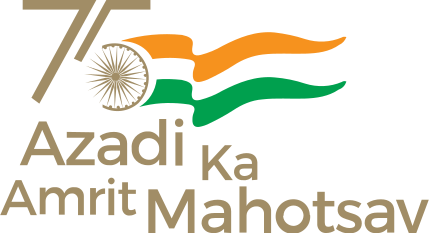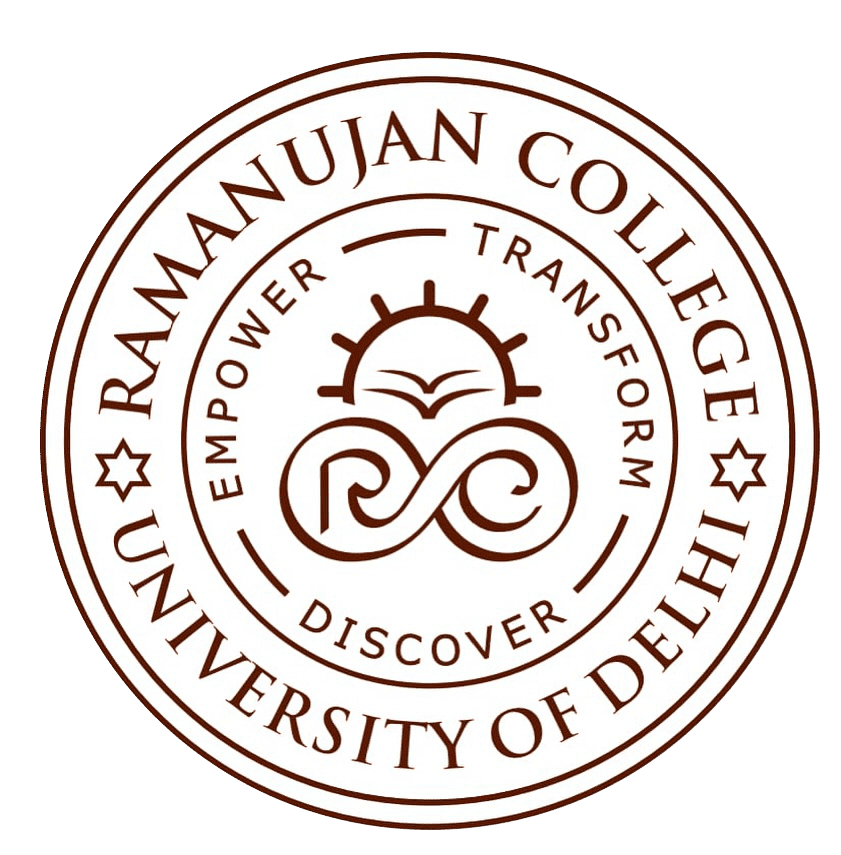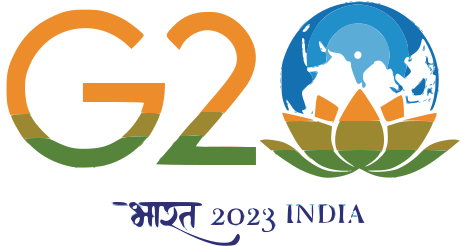Best Practice-I
Title of the Practice: Teaching Learning Centre
Goal: Reaching the Unreached
The College has been sanctioned a Teaching Learning Centre (TLC) under the aegis of the Pandit Madan Mohan Malviya National Mission on Teachers and Teaching (PMMMNMTT, MHRD). The Centre runs along the mission objectives and the guidelines set up by the MHRD and has at its core the idea of facilitating teaching learning process to the teachers across the country, especially those located in the remote areas of the country.
The Context
The Ministry of Human Resource Development (MHRD) launched the Pandit Madan Mohan Malaviya National Mission on Teachers and Teaching (PMMMNMTT) in 2017. One of the main objectives of this mission is to facilitate teacher training by constituting Teaching Learning Centers in various institutions of higher education in our country. The Teaching Learning Centers (TLCs) are mandated to promote on a continuous basis the learning of new pedagogical practices, methodology of forming discipline-specific curricula and creating new learning materials (including e-content) for use by the teachers in colleges and postgraduate departments. It is envisioned that the TLCs will accelerate the teaching-learning process by encouraging independent critical and creative thinking and facilitating research for subject-specific growth. The TLCs assist the faculty in capacity building for curriculum designing, scientific assessment and evaluation and the development of innovative academic programs to strengthen the inclusive nature of higher education. The TLCs are also encouraged to reach out to teachers teaching in regionally disadvantaged locations.
The Pandit Madan Mohan Malaviya National Mission emphasizes the need to change the role and workings of a teacher from a mere disseminator of information and knowledge to the one who helps students to develop critical, analytical skills, capabilities to generate information, the ability to reason and to empower themselves through open sources and globally oriented digitized self-learning processes. The focus is not only on ‘what is taught’ but also importantly, to ‘the way it is taught,’ in an effort to develop and enhance individual education, that will eventually go on to define the manner in which the future generations will work and live. The Teaching Learning Centers also offer Faculty Induction Programs (FIPs) for newly recruited faculty and Faculty Development Programs (FDPs) for teachers with experience who wish to update their field of knowledge, expertise and skill with the latest available research, resources and technology. In the FDPs, special emphasis is given to inter and cross-disciplinary methodologies of study.
In the University of Delhi, only 2 institutions received the prestigious opportunity to set up Teaching Learning Centre (TLC) within their premises, one of them being Ramanujan College. The Teaching Learning Center (TLC), Ramanujan College is playing a vital role in prioritising academic excellence through training programs for teachers. The TLC Ramanujan College is helping faculty members to not only undergo specific training programs but also enabled them to become trainers.
TLC Ramanujan College emphasizes the need to change the role and workings of a teacher from a mere disseminator of information and knowledge to the one who helps students to develop critical, analytical skills, capabilities to generate information, the ability to reason and to empower themselves through open sources and globally oriented digitalized self-learning processes. The focus is not only on ‘what is taught’ but also importantly, to ‘the way it is taught,’ to develop and enhance individual education, that will eventually go on to define how the future generations will work and live.
TLC, Ramanujan College offers Faculty Induction Programs (FIPs) for newly recruited faculty and Faculty Development Programs (FDPs) for teachers with experience who wish to update their field of knowledge, expertise, and skill with the latest available research, resources, and technology. In the FDPs, we give particular emphasis to inter and cross-disciplinary methodologies of study.
The third party evaluation done for our TLC had a parameter of self-sustenance in the future administration of the centre. Owing to the lockdown imposed and encouragement of the Government (Bharat Padhe Online Campaign); the centre thought it wise to experiment and reach a larger number of participants pan India rather than doing nothing while waiting for a suitable fund disbursal from the MHRD, thereby reflecting a self-sustainable model.
The Practice
A total of 16 programmes (Faculty Development Programmes /Faculty Induction Programmes/Workshops) have been conducted by TLC, Ramanujan College from April 2019 to March 2020 with 772 beneficiaries. Till March 2020, all the programmes conducted by TLC, Ramanujan College were primarily based on physical interaction. To continue the teaching learning process during the COVID19 pandemic, it was decided to organize the FDP/FIP/Workshop online with virtual engagement with all participants/learners.
The College has created a customised Learning Management System (LMS) platform which is not only predominantly participant friendly but also incorporates within it evaluation methods and comprehensive feedback systems to judge learning outcomes. This creative, innovative and effective method of online training by Ramanujan College is highly appreciated by the participants across the country. Within the span of three months (April to June 2020), the TLC has trained more than 45,000 participants through 11 online programmes.
The TLC, Ramanujan College, has associated with following eminent institutions in academic year 2019-20 for collaborative work and in the process created a synergy effect:
1. Department of Financial Studies, South Campus along with Indian Accounting Association, NCR Chapter.
2. Indira Gandhi National Centre for Arts
3. Department of Business Economics, University of Delhi
4. IQAC, PGDAV College, University of Delhi
5. Department of Commerce, University of Delhi
6. Sri Venkateswara College, University of Delhi
7. ARSD College, University of Delhi
8. Department of Philosophy, University of Delhi
Detailed List of Programmes by TLC (2019-20)
Evidence of Success
TLC, Ramanujan College, has not only broken boundaries spanning teacher’s training and but is also assuring state of the art training to thousands of teachers pan India through online mode. Numerous feedbacks received through the entrusted platforms as well as social networking platforms from the participants tell a story about the progression of TLC, Ramanujan College.
There have been four major gains in the online training of teachers through our Teaching Learning Centre. Firstly a very large number of participants have been able to access the courses at the same time. Secondly the Teaching Learning Centre of the College has been able to reach out to many teachers who are located in remote parts of the country. Thirdly, the process has also been cost effective as it did not involve travel, boarding and lodging expenses of the participants and the resource person. Finally, the online programmes involved a large number of teachers of various Departments of the college. They worked both online and offline throughout the lockdown period and not only facilitated the smooth running of these programmes but also contributed as resource persons.
Currently, we have gained expertise in conceptualising programme details, production of video lectures, hosting of lectures online as well as in open edX platforms and managing huge participation across the country with our able management team. The video production done can be accessed and perused via the YouTube channel link with more than 6,000,000 views.
Problems encountered and resources required
Since these TLC programmes were being organised and conducted by the members of the college faculty, it was a challenge to balance time between the teaching workload and the TLC programmes. This meant many teachers were overworked. During the physical organization of programmes, this included the conduct of field surveys for providing logistical support to the participants. For the conceptualisation of events, we conducted numerous pre-programme meetings with the experts.
In the FDP there was participation from across the country. In these programmes (online as well as offline) where there were large number of participants, the knowledge level was not uniform. Therefore, there was a challenge to create academic content that would suit everybody’s knowledge level in the stipulated time period.
Scheduling of the one-month FIP considering the convenience of the faculty members across the country is difficult in the offline mode. Examination, admissions, and vacation periods differ regionally and institutionally.
During lockdown, limited staff was available for making arrangements for the conduct of online training programmes which required big servers, portal development and maintenance; video production and management; video post production and management; assignments and project evaluation.
—————————————————————————————————————————
Best Practice-II
Title of the Practice: Skill-based Training of Students, Teachers and Non-Teaching Staff
Goal
The Hon’ble Prime Minister Shri Narendra Modi launched SKILL INDIA MISSION on 15 July 2015 with a aim to train people in India in different skills and with emphasizes at vocational training and certification of Indian youth for a better livelihood and respect in the society. The Ramanujan College is also committed to impart skill-based training to the students, teachers and non-teaching staff of the colleges/ universities.
The Context
Skill India Mission is a government scheme launched in 2015 with the chief objective to empower the youth of the country with adequate skill sets that will enable their employment in relevant sectors and also improve productivity. It is the need of the hour to train our students, teachers as well as non-teaching staff with skill-sets apart from the prescribed curriculum and existing framework. With changing technology, we need to enrich the pedagogy of the teachers and make them ready for the new age digitally savvy students. The students need to be trained for new skills so that they broaden their employment opportunities. The Non-teaching staff needs to be trained with new skills to increase their work efficiently and to make them equip for handling data of NAAC and NIRF.
The Practice
The Ramanujan College conceptualized and launched eight Certificate and Diploma Courses during 2019-20. These courses not only emphasized on the skill development of the students, but also will be beneficial for their employability/ entrepreneurship.
| Value Added Courses | Date of Introduction | Number of Students Enrolled |
|---|---|---|
| 20 Hours Certificate Course on Basics of Research | 13-01-2020 | 47 |
| Diploma Course in International Financial Reporting Standard (IFRS) | 15-02-2020 | 23 |
| 30 Hours Online Certificate Course on Research Data Analysis | 15-06-2020 | 903 |
| 60 Hours Diploma Course on Financial Modelling | 10-02-2020 | 111 |
| Certificate Course on Happiness | 05-08-2019 | 61 |
| Certificate Course in Radio Jockey and Broadcasting | 15-09-2019 | 13 |
| Certificate Course in Mass Media | 14-01-2020 | 28 |
| Certificate Course on Human Rights | 05-12-2019 | 22 |
Various departments of the college also organized the skill based workshops for the students. The Department of Commerce organised a One Day “Cyber Crime, Awareness and Security” workshop on November 6, 2019. The Department of Computer Science organized a Web Development Workshop on 27 and 28 September 2019. A two day (October 17 and 18, 2019) Interdisciplinary workshop on “Financial Modelling comprising 46 participants was organized by the Department of Management Studies. On 26th September, 2019 an informative and practical workshop on DevOps and Github was conducted by the Department of Vocation. A two day workshop on Introduction to Python for students during 14-15 October 2019 by Ramanujan Centre for applied Mathematics and Research. Centre for Robotics and Artificial Intelligence organized Dream AR 101 Workshop Series: on Google AR Code in collaboration with Cluster Innovation Centre, University of Delhi in August 2019.
The College is collaborating with different industries as an initiative required for the Deen Dayal Upadhyaya Kaushal Kendra in which skilled based vocational courses are taught. In this regard, the College has signed MOU with the Media Entertainment Skills Council of India for resource and industry support for the launching of vocational and Hons courses in media studies, film animation and computer graphics.
The Teaching Learning Centre of the Ramanujan College is dedicated towards imparting skill-based training to the teachers all over the country. More than 750 (in physical mode) and 45000 (in online mode) teachers were trained in creating MOOCs, understanding Research, handling Softwares and Managing Online Classes with proper hands on experience.
Two programmes were specifically designed for the non-teaching staff of the colleges during 2019-20. A Two Week FDP on Information Technology Applications in Library and Information Sciences was organized by the Teaching Learning Centre of the Ramanujan College in collaboration with Indira Gandhi National Centre for Arts from 9-20 October 2019 to acquaint participants with emerging ICT skills and knowledge critical for ensuring improved library services to the users. It helped them to be aware about ICT skills and knowledge and their application in the library, development of strategy and structure for implementation of new technologies, adoption of best library practices with emerging IT skills and ability to use open source software i.e., Koha and Dspace. The other program was conducted during the lockdown: Two Week Online Workshop on From E-Learning to E-Training: A Comprehensive Guide for all your Administrative Work, organized by TLC Ramanujan College in collaboration with Research Development and Services Cell, Ramanujan College from 25 May -3 June 2020 with more than 2000 participants. This workshop proved to be highly beneficial for the non-teaching staff in which they had hands on training on the following software tools: Advanced features of Word Processing and Spreadsheets, Google Forms, Google Sites, Digital Signatures, Mail Merge in Gmail, Preparing minutes through audio tools and Task Management.
Evidence of Success
The Diploma and Certificate courses launched by the college drew a participation of 1208 students from all over India. The first online course for the students by the Ramanujan College: “30 Hours Online Certificate Course on Research Data Analysis” received a tremendous response with a participation of 903 participants.
Numerous feedbacks have been received through the entrusted platforms and social networking platforms from the participants. All the Participants agreed to the fact that all the FDP sessions were highly informative, skill-oriented, the concepts which were being taught were something new to them which they earlier were not exposed to, and a majority of them agreed that their overall knowledge level had increased from the FDPs and attending these programs was really beneficial for their further research & teaching.
Due to the training of the non-teaching staff, the administrative work of our college is greatly facilitated by active use of Google Drive, Google Docs, Google Spreadsheets and Google Forms for sharing resources and collaborative learning. This has greatly helped in increasing the work efficiency of the non-teaching staff.
Problems encountered and resources required
Since the classes for the certificate/ diploma courses were held on weekends or late hours of the weekdays after the scheduled classes, therefore it was a challenge for the students to establish a balance between them.
There was a little hesitation in the initial stage among the seniors members of the teaching and non-teaching staff to learn the new technology. However, they succeeded in overcoming this reluctance with time.


